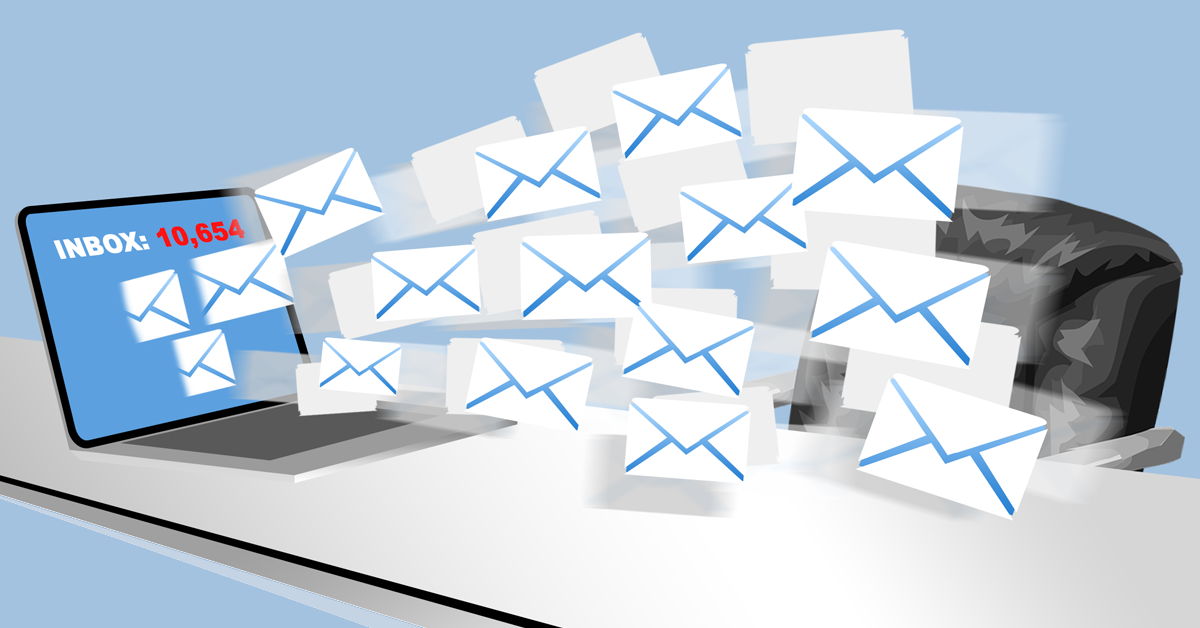
While email is a great business tool that has allowed near instantaneous communications with people around the world it can also lead to problems. Many people now receive dozens or even hundreds of emails in a day and at times it can seem like you are wasting your entire day dealing with all those incoming messages. You can quickly become overloaded with emails and the amount of emails also makes finding important messages harder.
So how can we deal with this overload? The first step is to reduce the number of emails you receive and there are a few ways to do this.
Restrict who you give you email address to: It is important to think carefully about who you give your email address to. For example, if you enter a lot of contests, this often automatically subscribes you to their email campaigns and / or adds you to a spam list. If you type your email into every popup box asking for it, these add up. Reduce who you give your email to.
Unsubscribe: If you haven’t opened one of those newsletter emails in months, go through and unsubscribe. Turn off notifications from social networks such as Facebook, Twitter and Pinterest. If you like emails from these networks, then adjust the settings so they email you the highlights once a day or week rather than allowing them to spam your inbox several times per day.
Do you need that notification? If you receive emails that contain information you can find elsewhere, switch those emails off. eg. you might run an e-commerce site that sends an email for every sale. If your website already has a record of this, you don’t need those notifications doubled up. If you really need that notification or email then create a rule to move it into a different folder and thus not clog up your general inbox.
Change your email habits: Change your own email sending habits. If a topic is complex and will require a lot of back and forth conversation, consider discussing it in person, over the phone or via one of the new online collaborative tools like MS Teams. Sending fewer emails will reduce how many you receive and remember that you don’t need to respond to every email you receive.
Resist sending unnecessary messages: Stop the urge to send messages with a single word like “Thanks!” or “Ok” and you will notice others will stop sending you similar, unnecessary messages. When sending group emails, you can also remind others not to use “reply all” unless the information is relevant to the entire group.
Start cleaning up: Start emptying out your inbox now and get rid of any old emails you don’t need to keep. Delete old calendar invites, advertisements or any emails where the problem has been resolved. Respond to any messages that can be answered as soon as you can. Move everything that is left until you have a completely empty inbox. Archive messages where you don’t need to take an action, but you think might be useful. You can search and find these later if necessary. Put other emails into folders based off of the type of email and the priority level.
From now on, try and automate things via rules. You can have receipts automatically go into a receipt folder, calendar invites into another, etc. A cluttered inbox can lead to your mind feeling just as cluttered.. Free up your inbox to free up your mind and create more time in your day-to-day life. Follow these steps and let email overload become a thing of the past.
If you need help with your emails, give us a call on 08 8326 4364 or via email at
su*****@dp*********.au
.
